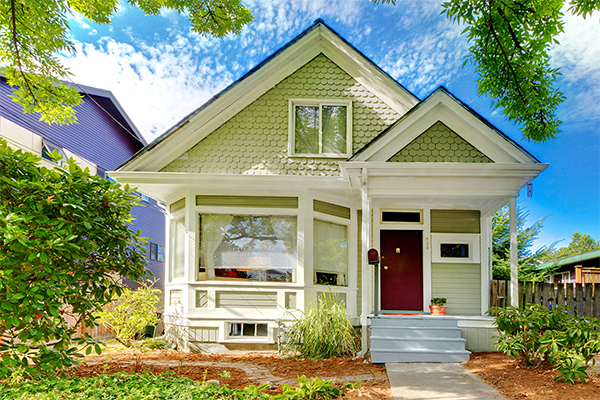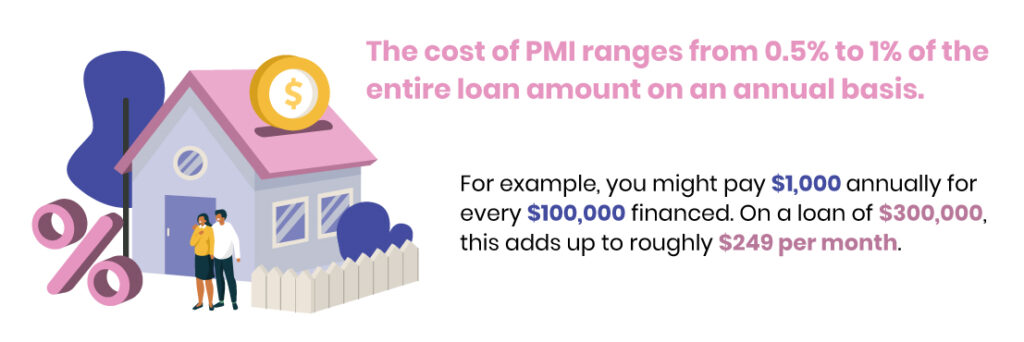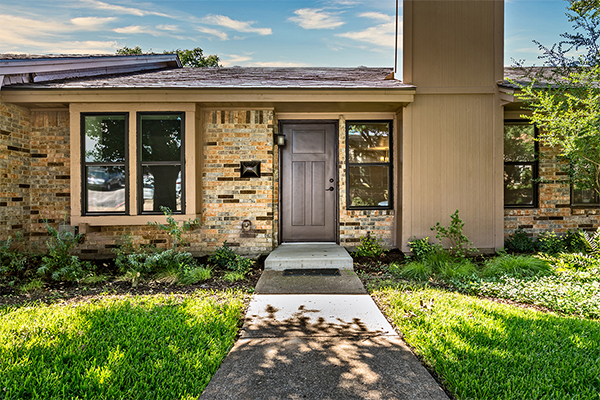Alabama First-Time Home Buyer Programs of 2022

Key takeaways:
- Alabama First-Time home buyer programs have low down payment requirements.
- Special tax credits are available that reduce the cost of owning a home.
- Federal programs are available and provide an alternative for those with credit challenges or who qualify for exclusive benefits.
If you’re a first-time home buyer, you aren’t alone. First-time home buyers make up about 33% of all new homeowners. When purchasing your first home, there are many items to consider, including how to apply for the loan, where to buy the perfect home, and how much to save for the down payment. The number of details can feel overwhelming, but fortunately, if you live in Alabama, the state financing authority has made it much more manageable.
Alabama residents have access to programs that aren’t available in other parts of the country and help reduce the cost of ownership. There are an assistance program and loan program to help with your monthly payment and other first-time home buyer needs. Low down payments, federal tax credits and other perks help get you on the road to homeownership faster.
First-time home buyer Alabama: Understanding PMI

The Alabama Housing Finance Authority (AHFA) offers programs with low down payment requirements and reduced private mortgage insurance (PMI). PMI is a type of coverage required for most mortgage programs. It protects the lender against loss if you stop making payments. PMI is typically required when you make a down payment of less than 20%.
The cost of PMI ranges from 0.5% to 1% of the entire loan amount on an annual basis. For example, you might pay $1,000 annually for every $100,000 financed. On a loan of $300,000, this adds up to roughly $249 per month.

Many programs allow you to remove PMI once you have at least 20% equity in the home. A home purchased for $200,000 several years ago, for example, may be worth $350,000 today. In this case, you have $150,000 in equity. This is more than 20% equity in the home (which would be $40,000), so you could request PMI be removed.
The AHFA also reduces your federal tax bill, which allows you to save money each month and decrease the cost of homeownership.
First-time home buyer program Alabama: The Step Up program

Are you interested in first-time home buyer grants in Alabama? Saving a down payment is a significant hurdle for first-time home buyers, and many mistakenly believe that they need at least a 20% down payment. For a $200,000 home, this would be $50,000 — a sizable amount. Fortunately, the AHFA offers up to 3% down payment assistance and a mortgage insurance discount with a conventional loan.
However, there are a few eligibility requirements, including the following:
- You must purchase a new or existing home. Unfortunately, you can’t refinance an existing home mortgage.
- The home must be located within the state of Alabama. Additionally, you must occupy the home as your primary residence within 60 days of closing the loan. For example, you can’t purchase the home and then put it on the market for rent.
- There are income limits. Your qualifying income can’t exceed $97,300 annually.
- You must apply for the program through one of the lenders approved by the AHFA.
- There are credit score requirements. Your credit score must be at least 640 or higher.
- Debt-to-income ratio requirements apply. Your debt-to-income ratio must be 45% or lower. Figure this out by dividing your total amount of debt (credit card monthly payments, student loan payments, auto loan payments, anticipated mortgage payments, etc.) by your monthly gross income.
- Additionally, you must complete a homeownership education course.
Those who qualify for the Step Up program may be eligible for a mortgage credit certificate (MCC), which can provide additional savings.
MCC tax credit program
The MCC tax credit program provides a credit that reduces the amount of federal taxes you owe and is a percentage of the annual mortgage interest. The rest of the annual interest can be claimed as a mortgage interest deduction on your tax return, which lowers your overall tax obligation each year The mortgage credit rates are based on the loan amount, including:
- Loan amounts of $150,001 and higher may qualify for an interest deduction of 20% of the mortgage interest paid annually.
- 3 Loan amounts between $100,001 to $150,000 may qualify for an interest tax deduction of 30%.
- Loan amounts of $100,000 or less may qualify for a 50% interest tax deduction.
The eligibility requirements for this program include:
- You must be a first-time home buyer or a buyer who has not owned a home for at least three years.
- You must purchase a new or existing home; you cannot refinance an existing mortgage.
- The home must be purchased in the state of Alabama, and it must be owner-occupied as your primary residence within 60 days of closing the home loan. For example, you can’t decide to rent out your home and still qualify for the special tax deduction.
How do I apply for the Step UP and MCC programs?
The AHFA doesn’t offer mortgage loans directly to home buyers but instead works with lenders across the state. These approved lenders will walk you through program qualifications and the home buying process.
Step Up, program lenders. The AHFA offers a list of current and approved lenders that you can search based on where you live.
MCC lenders. You can search for MCC lenders and get more information about taking advantage of the annual tax credit.
In addition to the programs offered through the AHFA, there are federal programs that can be a good fit for first-time home buyers. These programs offer low down payment assistance and lenient requirements.
Federal programs for first-time home buyers
Available federal mortgage programs offer another option for new home buyers. These programs are popular with first-time buyers due to low down payment requirements and exclusive benefits. But which program is right for you? Let’s take a look at some of the more popular options for first-time home buyers.
FHA loans. FHA loans offer a down payment as low as 3.5%, which reduces the burden of saving for a down payment. Credit scores as low as 580 may be approved; however, the down payment requirement may increase for lower credit scores.
An FHA mortgage requires an upfront fee of 1.75% of the loan amount for mortgage insurance. However, you can roll it into the loan amount and spread that payment over the loan’s life. In addition to the upfront premium, you’ll also pay a monthly premium, which varies from .45% to 1.05% of the loan amount annually. This amount varies based on the loan amount, size of the down payment, and the loan term.
VA loans. VA loans are a good option for first-time home buyers with a background in the military. These programs are open to those who are active in the military, veterans, or a qualifying spouse. A VA loan doesn’t require a set down payment. For example, a borrower can get into a new home with a 0% down payment.
Additionally, unlike other loans, the VHA loan does not require PMI. This creates sizable savings for borrowers and allows them to qualify for a higher mortgage amount. Remember when we discussed the debt-to-income ratio? When you aren’t paying for PMI, you have more wiggle room for a larger mortgage.
U.S. Department of Agriculture (USDA) loans. USDA loans are available to qualified borrowers who purchase in geographical areas eligible for USDA loans. Typically, these areas include rural locations with a population of 20,000 or fewer. A significant benefit of USDA loans is there is no down payment requirement. However, you will need a credit score of at least 640.
USDA loans don’t require PMI, but they have two different types of mortgage insurance, including an upfront “guarantee fee” and an annual fee. The upfront fee is equal to 1% of the loan amount, and the annual fee is equal to .35% of the loan amount. The upfront fee is due at closing but can be financed into the loan.
Creating a stronger financial future
First-time home buyers have many decisions to consider, including how much to save for a down payment, how much they can afford, and where to find the right home. But when you use a first-time home buyer program, that stress is significantly reduced. Down payment assistance helps offset upfront costs, and lower tax payments further reduce ongoing costs.
Discovering what programs are available and best suited to your circumstances puts you on the path to your new home faster and with less out-of-pocket expense.






